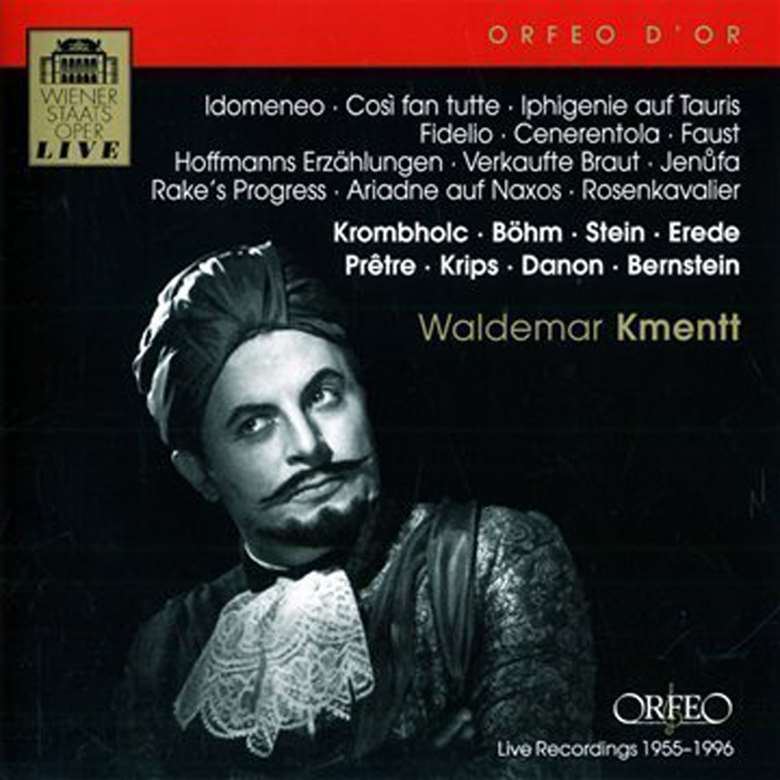The tenor Waldemar Kmentt has died
Gramophone
Wednesday, January 21, 2015
Born February 2, 1929; died January 21, 2015

The Austrian tenor Waldemar Kmentt has died; he was 85. Born in Vienna he studied at the city's Music Academy. He made his debut in 1950 singing the tenor part in Beethoven's Ninth Symphony (a part he would later record on Herbert von Karajan's classic 1962 cycle for DG as well as on Otto Klemperer's 1968 HMV recording). In 1951 he made his stage debut at the Vienna State Opera as the Prince in Prokofiev's The Love for Three Oranges. He sang many of the Mozart lyric tenor roles including Ferrando, Tamino, Don Ottavio and Idamante as well as Idomeneo. He made his Salzburg Festival debut in 1955 as Dandini in Pfitzner's Palestrina. In 1968 he appeared as Walther von Stolzing in the Bayreuth Festival production, conducted by Karl Böhm, of Die Meistersinger von Nürnberg (a recording of which available of Orfeo).
While he focused on the German repertoire, he did occasionally sing in Italian. Late in his life he appeared in a number of character roles including Monsieur Triquet in Eugene Onegin, Altoum in Turandot and the Innkeeper in Der Rosenkavalier. He also taught at his alma mater, the Vienna Music Academy.
On record he can be heard on both the Moralt and Solti Salome recordings (as Narraboth) and on Solti's Tristan und Isolde (as the Young Sailor). He also recorded a number of operettas including The Merry Widow, Giuditta, Die Fledermaus, Der Graf von Luxenbourg and Der Zarewitsch. He was also the tenor soloist in a 1967 Vienna SO recording of Mahler's Das Lied von der Erde, when Carlos Kleiber stepped in for an ailing Josef Krips. He can also be heard, more happily, in a live recording from the 1959 Salzburg Festival with the VPO conducted by Rafael Kubelík (Orfeo). In 2009, Orfeo issued a collection of Kmentt's performances given at the Vienna State Opera between 1955 and 1996.
Of a solo Schubert disc he recorded for Philips, and which Gramophone reviewed in September 1960, Andrew Porter wrote: 'His voice is not distinctive in any easily describable way, but it is of most agreeable quality, evenly and easily produced, clean in focus, and sufficiently varied in timbre for him to be able to characterize (without exaggeration) the four voices involved in Der Erlkönig. These are four well-studied, well-realized interpretations.'











